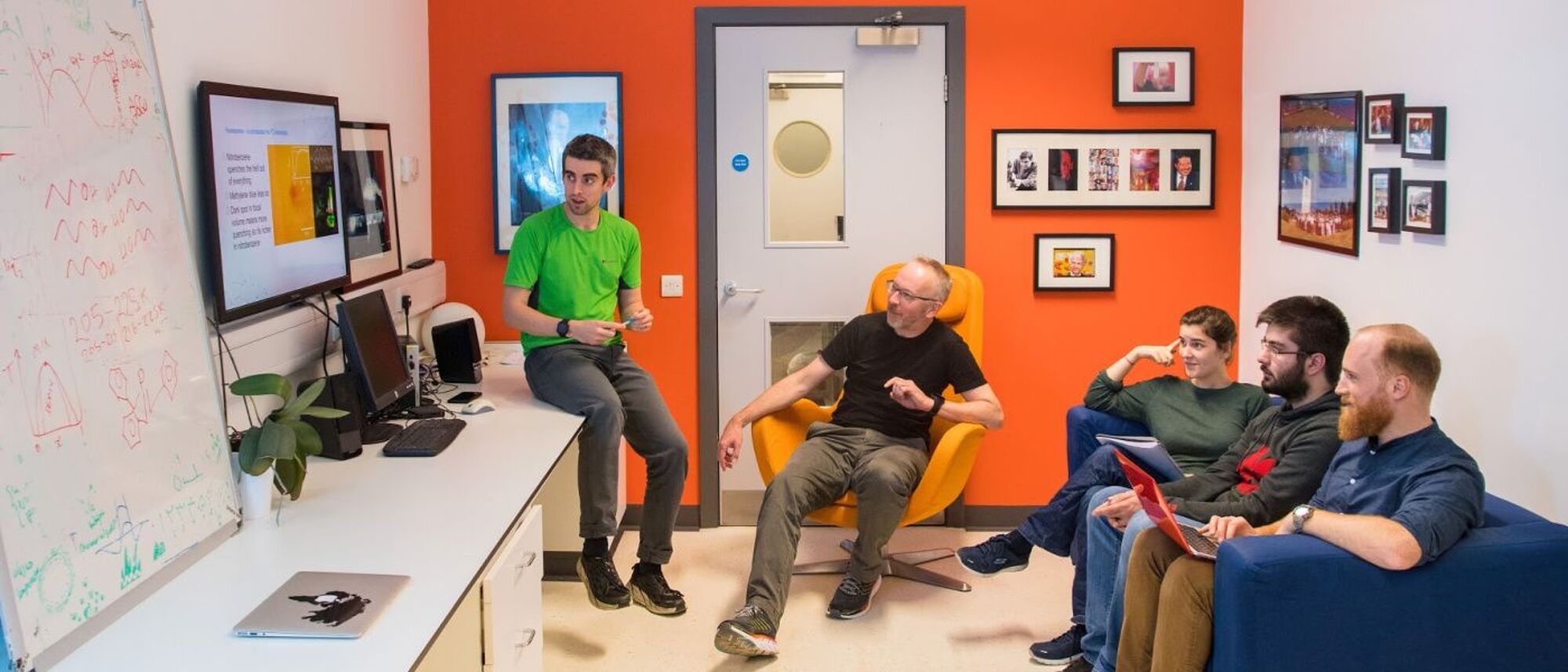
Creating a positive research culture
We value collaboration as integral to our success as a world-changing university. As well as working with our partners around the world, we recognise the importance of creating a culture within which transparency and collegiality is the norm.
In the academic research community, excellence is so often a measure of grant income and the external impact of academic output, leading to hyper-competitive environments which can stifle positive behaviours. Less often are universities evaluated on how well they incentivise a positive research culture. However, as attention in the sector is beginning to turn to not just what research is being done, but how it is being done, we are taking steps to enhance the research culture at Glasgow.
Furthering key values
We believe that a positive culture is one in which colleagues are valued for their contributions and in which they support each other to succeed. A positive culture cannot be achieved in a single step. Our approach is to focus on a series of actions to further key values, such as research integrity, open research, recognition for varied contributions to research, and fair approaches to evaluation and collegiality. And of course, core to all of this, is celebrating and rewarding good practice.
Promoting collegiality
Our professors are expected to lead by example by demonstrating collegiality in research, teaching and academic leadership. Since last year, academics who are applying for a professorship, or seeking a higher professorial grade, must demonstrate collegiality and a commitment to open research practice to receive promotion. Demonstratable behaviours might include nominating others for awards, helping colleagues to gain credit on major research projects, collaborating on grant applications, and taking on additional supervisorial duties in support of junior colleagues.
Rewarding positive action
As well as aligning collegiality with promotion and individual performance review, we’re rewarding collegiality at all levels and across disciplines. Last year, we launched our Research Culture Awards, to celebrate outstanding activities that promote collegial behaviours among researchers. The contributions of our four inaugural winners range from developing support-mechanisms for grant applications to establishing and running a network for early career researchers, but one thing they all have in common is the desire to help their colleagues.
Valuing teamwork
“So many of the world’s challenges – infectious disease, mental health, climate change, inequality – require us to work in partnership with colleagues with varied backgrounds and skills, here and across the globe, in academia and in many sectors too, and with the public.” said Dr Tanita Casci, Head of Research Policy, “With so much more of our funding opportunities being directed at solving large challenges, we simply cannot change the world without teamwork.
“One thing that sometimes gets lost when we talk about culture is that it’s not a separate agenda from the excellence agenda. Culture is not a substitute for excellence; culture is what allows even more of us to excel.”
Of course, this same approach to collegiality also applies to our global collaborations and partnerships. By recognising each other’s strengths and celebrating our collective success, we move forward with our shared ambition to change the world.
First published January 2020.
Our research
For over 550 years we’ve carried out world-changing research.
If you are interested in discussing partnership opportunities with Glasgow on an institutional, regional or network basis, please contact Professor William Cushley, Assistant Vice Principal International.



